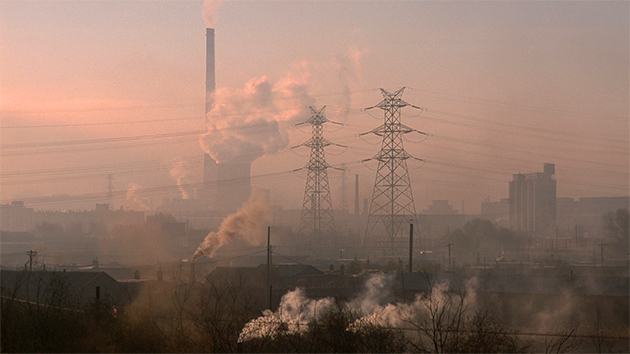
Story: Francis Npong-Ghana: A journalist group in Ghana, Media Advocates for Sustainable Environment (MASE) is taking on the managers of Ghana’s electricity Company-Volta River Authority (VRA) over plans to construct a coal-fired plant in Ghana.
The public energy company is partnering with one of its Chinese partners, Shenzhen Energy Group Co. Ltd of China (SEC) construct a coal-fired plant. The project estimated to cost $1.5 billion the managers said is bringing onboard 350mw of power into the national grade to make up the shortfall.
But media network said the project is part of the Chinese government’s plan to make Ghana a dumping site for it dirty coal products. Beijing, the group said is stepping up efforts to cut the share of coal in its overall energy mix and consequent smog and greenhouse gas emissions. The Chinese government is spending $4.6 billion (30 billion yuan) to close down coal plants and mines across the country.
“The $1.5 billion price task place on the project is the ground plan by the Chines government to make Ghana a dumping site for coal products”, the network said.
According to the network’s, Coordinator Francis Npong, the claims by the managers of VRA that latest technologies will be deployed to minimize carbon emission is deceptive and plans to lure Ghana into accepting the project. “If the so-called technologies exist in China, why is China closing down some of her coal mines and plants?”, he asked.
The network, he said, in the coming days would launch a vigorous campaign against VRA and the government of Ghana to ensure that they back down the plan to construct a coal-fired plant.
They said establishing a coal-fired plant is not a cure-all to Ghana’s energy crisis and should be abolished immediately. Coal-fired plant is not an option to be considered in attempts to find lasting solution to the country’s energy problem. If VRA is looking for latest technologies, they should consider renewable energy, solar energy, and wind energy both of which are cheap and clean. “Use the $1.5billion to construct wind turbines or solar farms” they advised.
The group said Ghana’s energy crisis is a result of efficiency, mismanagement and lack of innovative and sustainable plan in the energy sector. They shoot down VRA’s claims that the coal-fired plant would strengthen Ghana’s base load and forestall any future shortage of power and that this claim is not feasible and unreliable.
Coal plants are the top source of carbon dioxide (CO2) emissions and the principal cause of climate change. Research has shown that a typical coal-fired plant generates 3.5 million tons of CO2 per year, so how is VRA going to handle this situation?
Media Advocates for Sustainable Environment (MASE) is calling on the president John Dramani Mahama, Parliamentarians and Ghanaians to stand up against the move by VRA to establish a coal-fired plant in Ghana.
Watch video: How Chinese are struggling with smog; coal effects.
A recent research report on coal by Physicians for Social Responsibility in the US said that coal combustion releases mercury, particulate matter, nitrogen oxides, sulfur dioxide, and dozens of other substances known to be hazardous to human health. The cumulative harm of those pollutants are on three major body organ systems; the respiratory system, the cardiovascular system, and the nervous system. The research illustrated the effects on health in the following:
Respiratory Effects: Air pollutants produced by coal combustion act on the respiratory system, contributing to serious health effects including asthma, lung disease, and lung cancer, and adversely affect normal lung development in children.
Cardiovascular Effects: Pollutants produced by coal combustion lead to cardiovascular disease, such as arterial occlusion (artery blockages, leading to heart attacks) and infarct formation (tissue death due to oxygen deprivation, leading to permanent heart damage), as well as cardiac arrhythmias and congestive heart failure. Exposure to chronic air pollution over many years increases cardiovascular mortality.
Nervous System Effects: Studies show a correlation between coal-related air pollutants and stroke. Coal pollutants also act on the nervous system to cause loss of intellectual capacity, primarily through mercury. Researchers estimate that between 317,000 and 631,000 children are born in the U.S. each year with blood mercury levels high enough to reduce IQ scores and cause lifelong loss of intelligence.
Global Warming: Even people who do not develop illnesses from coal pollutants will find their health and wellbeing impacted due to coal’s contribution to global warming. The discharge of carbon dioxide into the atmosphere associated with burning coal is a major contributor to global warming and its adverse effects on health and wellbeing worldwide, such as heat stroke, malaria, declining food production, scarce water supplies, social conflict, and starvation. Read the report here.
Media Advocates for Sustainable environment (MASE) is a group of environmental journalists operating and promoting environmental justice in Ghana. Its partners include KASA, WACAM, NGND, RUMNET, CARE Ghana, SEND Ghana, GDCA among others.

